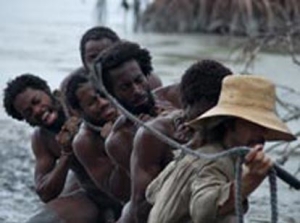Screening at the Barbican on September 25, 2010
For his new film on the Cuban national hero Martí, Fernando Pérez has returned to classical narrative after a run of offbeat movies, both fiction and documentary. In Martí, el ojo del canario (Martí: The Eye of the Canary), he reinvents the childhood and adolescence of Cuba’s nineteenth century national hero José Martí, covering the years he lived in Cuba before being sent into exile for political sedition at the age of seventeen. Not a subject to be approached without care, since Martí is a figure, as Guiteras points out on La Joven Cuba, who is adored and put to use by contrary political tendencies to legitimise their own position.
Pérez negotiates this ideological minefield by creating a bildungsroman in four chapters. Since there’s little documentation about Martí’s early years, the potrait he paints is imaginary, but rooted in both socio-historical and psychological truths, while avoiding the pitfalls of costume drama by insisting on a restrained realism (provided by the terrific cinematography of Raúl Pérez Ureta).
It’s a film full of moments of great natural beauty, family intimacy, dramatic incidents and moments of quiet epiphany, for this Martí is taciturn and introspective and hardly speaks throughout the film, but he sees everything (through the eyes of two subtle young actors, Damián Rodríguez and Daniel Romero), and is ready to stare his father out when it comes to confrontation. For this is a story of oedipal rebellion, against the authoritarianism of both the boy’s father and the colonial state, which remains subtle enough to appeal to many different sensibilities.
For Spanish-speaking readers: CubaCine
Trailer:
[wpvideo GcsS6gze]

